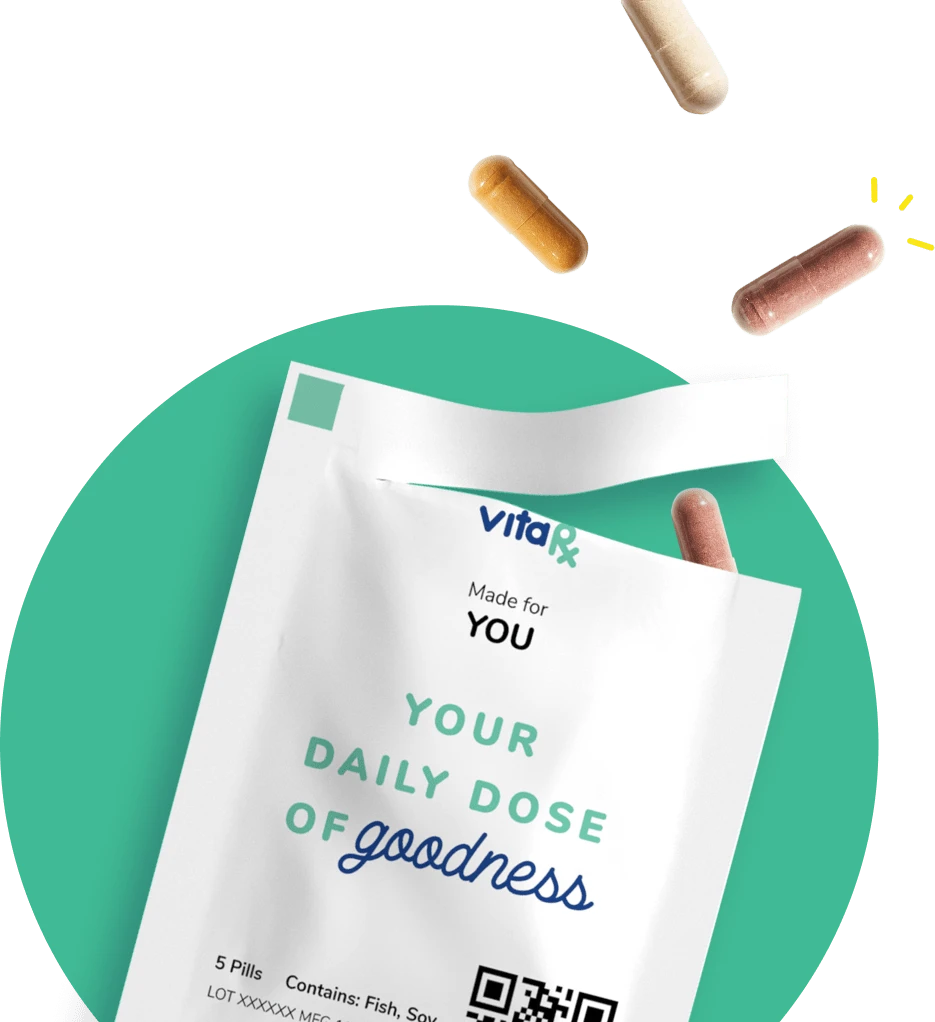Last update: December 26, 2024
Rhodiola: The Complete Guide
Explore the science-backed health benefits of rhodiola. From stress reduction to improved mood, learn how this adaptogenic herb may support your overall health.

By Derick Rodriguez, Associate Editor
Edited by Dr. Dimitar Marinov, MD, RDN, PhD

Key takeaways
- Rhodiola is a perennial flowering plant native to the cold regions of Europe and Asia.
- Rhodiola is widely used as a dietary supplement for its many health benefits.
- Rhodiola’s roots contain over 140 active ingredients, with rosavin and salidroside as key compounds.
- It’s considered an adaptogen, which is a substance that helps the body handle physical and mental stress.
What is Rhodiola?
Rhodiola rosea is a perennial flowering plant that grows naturally in the cold, mountainous regions of Europe and Asia. While it is often referred to as a supplement, it's important to note that the supplement form is derived from the roots of the plant itself.
As a plant, Rhodiola rosea has been used for centuries in traditional medicine practices. The plant's roots are typically harvested, dried, and then used to create various herbal preparations. However, in modern times, Rhodiola rosea is most commonly consumed as a dietary supplement. The roots of the plant are extracted and standardized to contain specific amounts of active compounds, like rosavin and salidroside, which are believed to be responsible for the plant's adaptogenic properties.
Used by the Vikings
Rhodiola rosea is believed to have been used by Vikings to enhance their physical strength and endurance during long sea voyages and in battle.
Rhodiola contains over 140 active compounds that exert powerful health benefits. Rhodiola supplements are often used to promote general well-being and to help the body adapt to stress. Some studies have investigated the potential benefits of Rhodiola rosea supplements for reducing fatigue, improving mental performance, and supporting a healthy mood [1, 2].
Different types of Rhodiola
Yes, there are several different species of rhodiola, each with its own unique characteristics and potential benefits. Here are four different types of Rhodiola, each with its own unique characteristics and potential benefits:
- Rhodiola rosea: Known for its high content of rosavins and salidroside, which are believed to be the primary active compounds responsible for its adaptogenic effects. Rhodiola rosea is the most extensively studied species and is widely used in commercial supplements.
- Rhodiola crenulata: Compared to Rhodiola rosea, this species has a higher content of salidroside and tyrosol, as well as unique compounds like lotaustralin and rhodiosin. These differences in chemical composition may contribute to its potential benefits for altitude sickness and cardiovascular health.
- Rhodiola imbricata: Characterized by the presence of unique phenolic compounds, like gossypetin and rhodioflavonoside, which are not found in significant amounts in other Rhodiola species. These compounds may play a role in the potential neuroprotective effects of Rhodiola imbricata.
- Rhodiola kirilowii: Contains a unique combination of compounds, including salidroside, tyrosol, and the flavonoid epicatechin. Rhodiola kirilowii also has a higher content of polysaccharides compared to other Rhodiola species, which may contribute to its potential immunomodulatory effects.
While these differences in chemical composition may seem subtle, they can influence the specific effects and potential benefits of each Rhodiola species.
How does Rhodiola work in your body?
What are some benefits of Rhodiola?
Rhodiola contains various properties that may contribute to overall well-being.
Helps manage stress
Rhodiola acts as an adaptogen, enhancing the body's resilience to stress and improving coping mechanisms. It may mitigate the impact of both physical and psychological stressors, promoting overall well-being [6].
Supports mental performance
Studies suggest that Rhodiola has the potential to enhance cognitive function, contributing to improved mental performance during mentally taxing situations. While more research is needed, these findings indicate positive effects on learning and memory [6].
Supports mood balance
Rhodiola has been linked to potential antidepressant properties, influencing neurotransmitters associated with mood and emotion. Research indicates positive effects on symptoms of depression, with a favorable side effect profile [6].
Facilitates exercise recovery
Some studies suggest that Rhodiola may enhance sports recovery by reducing pain and muscle damage [7].
Where is Rhodiola rosea found?
Rhodiola rosea grows naturally in the cold, mountainous regions of Europe, Asia, and North America. It is well-adapted to harsh climates and can be found at high altitudes. This plant can be found in the following areas:
- North America: In North America, Rhodiola rosea grows in the cold regions of Alaska, Canada, and the Rocky Mountains of the United States.
- Europe: In Europe, Rhodiola rosea grows in the mountainous regions of Scandinavia, Iceland, the British Isles, and the Alps. It is particularly abundant in countries like Norway, Sweden, and Russia.
- Asia: Rhodiola rosea is native to the mountainous regions of Siberia, the Altai Mountains, and the Tibetan Plateau. It is found in countries like Russia, China, Mongolia, and Kazakhstan.
- Arctic region: Rhodiola rosea is commonly found in the Arctic regions of Europe, Asia, and North America. It thrives in the cold, harsh conditions of these areas.
While Rhodiola rosea is found naturally in these regions, it is also cultivated commercially for use in dietary supplements. The roots of the plant are harvested, dried, and then extracted to produce standardized Rhodiola rosea supplements.
Delivery methods
Rhodiola supplements come in various delivery methods, each offering its own set of benefits and ways of consumption. Here's a brief overview of the different delivery methods:
Choose a method that fits your routine
Do not overlook the delivery method. Rhodiola supplements come in tablets, capsules, soft gel, chewable, powders, and liquid forms—choose the one that best fits your daily routine to stay consistent.
What to look for in Rhodiola supplements
When selecting a supplement, several key factors must be considered to ensure you choose a high-quality product that effectively supports your health goals and overall well-being.
Dosage and potency
The dosage of Rhodiola in supplements varies, so it's important to choose one that aligns with your specific needs. This includes considering your age, gender, and health status, like pregnancy or existing deficiencies. The Rhodiola formulation can impact its potency and bioavailability, which affects how effectively your body can absorb and use it.
Quantity and delivery method
The delivery method is crucial. Rhodiola supplements come in various forms, including tablets, capsules, powders, chewables, and liquid forms. Your choice may depend on factors like ease of swallowing, convenience for traveling, or personal preference regarding taste and texture. Also, evaluate the quantity of Rhodiola to determine how long it will last based on your daily requirements.
Quality and manufacturing
Quality is paramount when selecting Rhodiola supplements. Look for products manufactured under strict quality control guidelines and those that have undergone third-party testing for purity and label accuracy. Certifications from recognized bodies can be a reliable indicator of a high-quality product. Additionally, consider the manufacturer's reputation and transparency in their production processes.
How and when should you take Rhodiola for maximum absorption?
To get the most out of your Rhodiola supplement, it's crucial to consider the timing and method of consumption. The following dos and don'ts offer guidance on optimizing absorption, efficiently supporting your health and wellness, and minimizing potential discomfort.
Do’s
Take Rhodiola on an empty stomach.
Swallow capsules with water for better absorption.
Consider taking it in the morning or early afternoon.
Don’ts
Avoid taking Rhodiola before bedtime.
Do not crush or chew Rhodiola capsules.
Avoid taking Rhodiola with other stimulants.
Who should take Rhodiola?
Taking Rhodiola supplements has its potential benefits, but it may not be for everyone.
Recommended dosage
Rhodiola can provide many benefits so long as you take the recommended daily amount. Here are the recommended doses for Rhodiola across various age groups.
Side effects of excessive Rhodiola consumption
While Rhodiola supplements are generally safe when taken within recommended limits, excessive intake can have adverse effects:
- Dizziness
- Dry mouth
- Excessive saliva production
Always consult your doctor
If you're experiencing side effects, consult your healthcare provider. They may recommend a different Rhodiola formulation or adjust your dosage. Balancing your Rhodiola needs with any discomfort is crucial and should not be overlooked.
Health made easy: your go-to resource for essential vitamins and supplements
Frequently asked questions about Rhodiola (FAQ)
Our library of expert-authored articles covers just about every question you might have about vitamins, minerals, and supplements — along with some you might not have known you had.
Final thoughts
Rhodiola supplements can be good for your health. They're known for helping your body handle stress, fight tiredness, and maybe even support physical performance. A lot of people like taking Rhodiola as a health supplement. Some proven benefits include less stress and better mood. It's generally safe, but you need to follow the recommended doses, start with small amounts, and talk to a doctor, especially if you have health problems or take other medicines. For the best results, it's suggested to take Rhodiola in the morning. Also, remember that having a balanced diet and regular exercise is important for your overall health, just like with any other supplement.
Sources and references
- Anti-inflammatory effects of Rhodiola rosea L.: A review - ScienceDirect
- Phenolic Compounds of Rhodiola rosea L. as the Potential Alternative Therapy in the Treatment of Chronic Diseases
- Sodium-dependent Glucose Transporter Was Involved in Salidroside Absorption in Intestine of Rats - ScienceDirect
- Salidroside as a potential neuroprotective agent for ischemic stroke: a review of sources, pharmacokinetics, mechanism and safety - ScienceDirect
- The effects of Rhodiola Rosea supplementation on depression, anxiety and mood – A Systematic Review
- The Effectiveness of Rhodiola rosea L. Preparations in Alleviating Various Aspects of Life-Stress Symptoms and Stress-Induced Conditions—Encouraging Clinical Evidence - PMC
- Effects of Rhodiola Rosea Supplementation on Exercise and Sport: A Systematic Review - PMC
- Herbal Medicines—Are They Effective and Safe during Pregnancy?
- Rhodiola | NCCIH
- Viking Power: Nutrients from the North - Naturobotanica
Editor

Derick Rodriguez
Derick Rodriguez focuses on editing health and wellness-related content. With over half a decade of experience in the digital realm, Derick has developed a unique skill set that bridges the gap between complex health concepts and accessible, user-friendly communication. His approach is deeply rooted in leveraging personal experiences and insights to illuminate the nuances of health and wellness topics, making them more approachable and empowering readers with knowledge and confidence.
Fact checker

Dr. Dimitar Marinov
Dr. Marinov has years of experience in scientific research and preventive and clinical medicine. His publications in peer-reviewed journals are on nutritional status, physical activity, and musculoskeletal disorders among adolescents.
At VitaRx, we're not just passionate about our work — we take immense pride in it. Our dedicated team of writers diligently follows strict editorial standards, ensuring that every piece of content we publish is accurate, current, and highly valuable. We don't just strive for quality; we aim for excellence.
Related posts
While you're at it, here are some other relevant articles you might be interested in.

Get your personalized vitamin recommendations in less than 3 minutes.
Get your personalized vitamin recommendations in less than 3 minutes.











